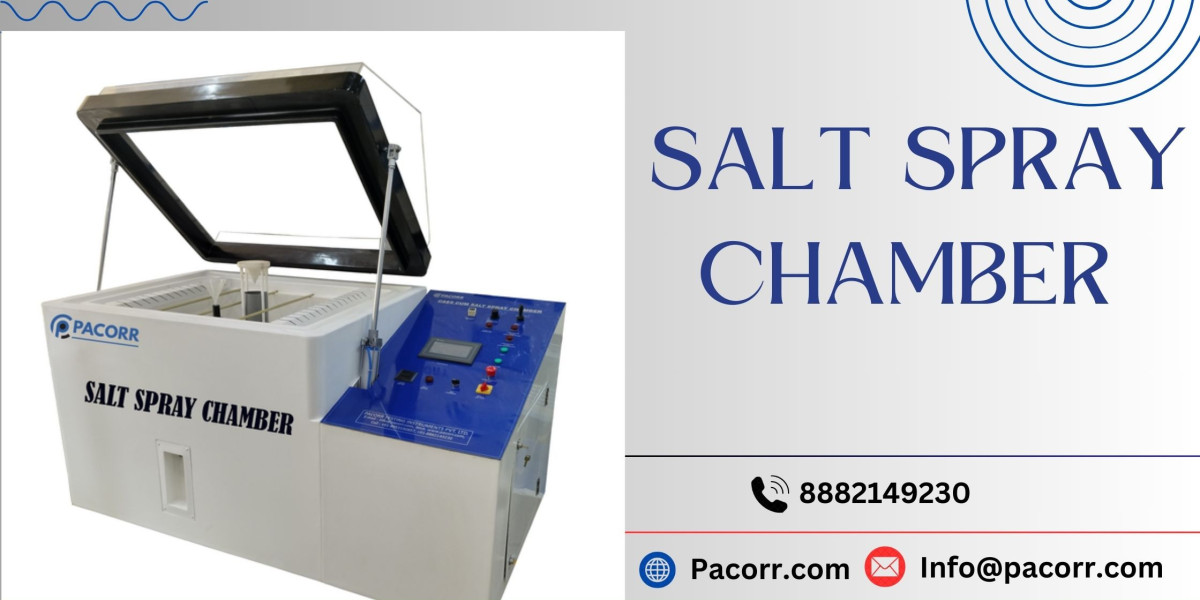What is a Salt Spray Chamber?
A Salt Spray Chamber, also known as a salt fog chamber, is a specialized testing apparatus used to evaluate the resistance of materials to corrosion. It exposes samples to a controlled saline environment, mimicking conditions that materials might face in real-world applications, such as exposure to seawater or de-icing salts. The chamber generates a fine mist of saltwater, creating a corrosive atmosphere that can significantly accelerate the deterioration of materials.
How Does a Salt Spray Chamber Work?
The operation of a Salt Spray Test Chamber is relatively straightforward but relies on precise control of various environmental factors:
- Sample Preparation: Before testing, samples are prepared according to specific standards. This may involve cleaning and conditioning the surfaces to ensure accurate results.
- Saline Solution: A salt solution, typically sodium chloride (NaCl), is mixed with distilled water. The concentration is often set to 5% by weight, following standards such as ASTM B117.
- Atomization: The saline solution is atomized using a nozzle, creating a fine mist that fills the chamber. This mist condenses on the sample surfaces, simulating corrosion-inducing conditions.
- Environmental Control: The chamber is maintained at a consistent temperature, usually around 35°C (95°F), to ensure uniform testing conditions. The pH level and the rate of spray are also monitored to comply with testing standards.
- Test Duration: The duration of the test can vary depending on the material being tested and the specific standards being followed. Tests can range from a few hours to several weeks, depending on the expected service life of the product.
- Evaluation: After the test is complete, samples are examined for signs of corrosion, such as rust, pitting, or discoloration. This evaluation helps manufacturers understand how well their materials can withstand corrosive environments.
Applications of Salt Spray Testing
Salt Spray Chambers are used across various industries, including:
- Automotive: Testing coatings and finishes on vehicles to ensure they resist rust and corrosion from environmental exposure.
- Aerospace: Evaluating materials and coatings for aircraft components that must withstand extreme weather conditions.
- Electronics: Assessing the durability of electronic enclosures and connectors against corrosion.
- Marine: Testing products exposed to saltwater, such as boats and marine equipment.
- Construction: Ensuring building materials can withstand harsh weather conditions.
Why is a Salt Spray Chamber Essential?
- Quality Assurance: By simulating real-world conditions, manufacturers can ensure that their products meet industry standards for durability and longevity.
- Regulatory Compliance: Many industries have stringent regulations regarding corrosion resistance. A Salt Spray Test Chamber helps manufacturers comply with these standards, avoiding potential liabilities.
- Product Development: During the R&D phase, testing materials in a Salt Spray Chamber can provide valuable insights into which materials perform best under corrosive conditions, guiding the selection of materials for new products.
- Cost Savings: Detecting corrosion issues early in the production process can save manufacturers significant costs associated with product failures, recalls, or warranty claims.
- Customer Satisfaction: Providing durable and reliable products leads to higher customer satisfaction and brand loyalty, essential for long-term business success.
Conclusion
The Salt Spray Chamber Price is an invaluable tool for manufacturers committed to producing high-quality, durable products. By simulating corrosive environments, it allows for thorough testing and evaluation, ensuring that materials can withstand the rigors of real-world use. For businesses aiming to enhance their quality control processes and meet regulatory standards, investing in a Salt Spray Chamber is a wise decision.
Contact Us:
· Email: [email protected]
· Phone: 8882149230
· Visit our website at www.pacorr.com for more details on our testing instruments.







